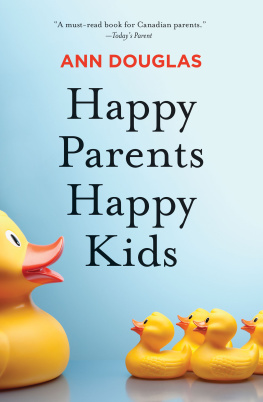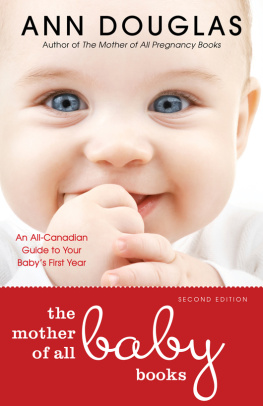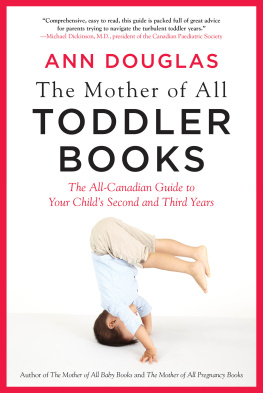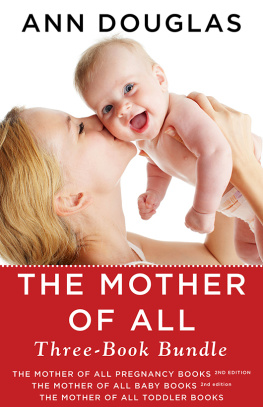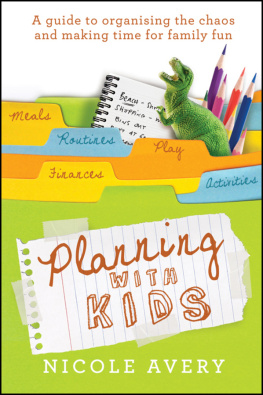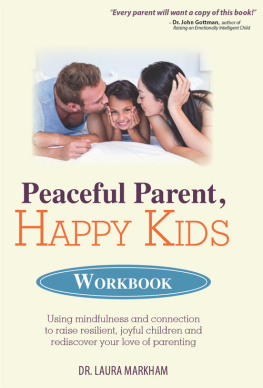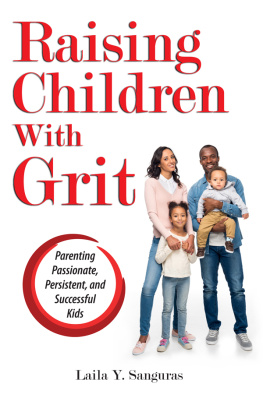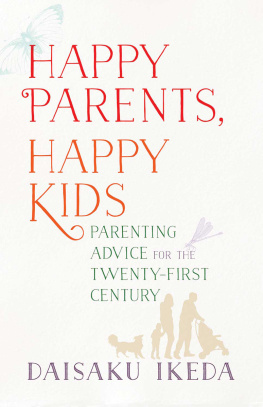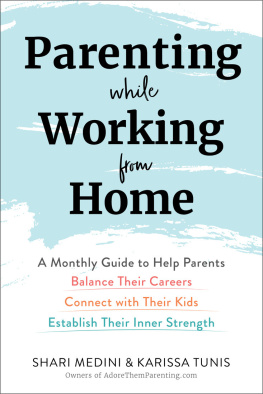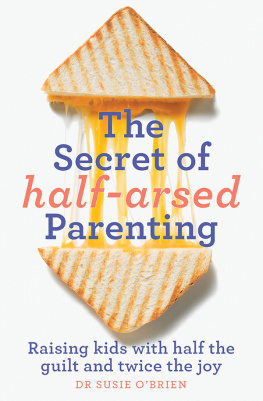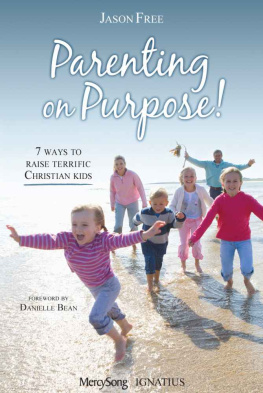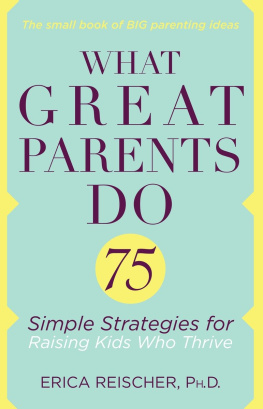This book is designed to provide you with general information about parenting and health, so that you can be a better-informed health consumer and parent. This book is not intended to provide a complete or exhaustive treatment of this subject; nor is it a substitute for advice from the health practitioners who know you and your child best. Seek medical attention promptly for any medical or psychological concern you or your child may be experiencing. Do not take any medication without obtaining medical advice. All efforts were made to ensure the accuracy of the information contained in this publication as of the date of writing. The author and the publisher expressly disclaim any responsibility for any adverse effects arising from the use or application of the contents herein. While the parties believe that the contents of this publication are accurate, a licensed medical practitioner should be consulted in the event that medical advice is desired. The information contained in this book does not constitute a recommendation or endorsement with respect to any company or product.
A funny thing happened on the way to writing this book. I almost ended up not having a book to write!
Okay, the situation wasnt quite that dire, but it was pretty dire in the early days, as I found myself scrambling to find parents who were willing to be interviewed for a book about being the happiest, healthiest parent possibleand raising the happiest, healthiest kid. Heres how things played out time and time again during the earliest stages of my book research: Id approach some parents, tell them about the book, and ask them if theyd be willing to be interviewed. The parents would initially express great enthusiasm for the project, telling me that there was a tremendous need for just such a book, and that, in fact, they couldnt wait to rush out and pick up a copy for themselves.
And then, boom, the parents would turn down my request for an interview.
It wasnt that they didnt want to help, they were quick to explain; it was just that they didnt feel qualified to help. Yes, they were parents, but its not like they were especially good parents. In fact, truth be told, they believed they were pretty much doing it all wrong. They simply didnt have any business being interviewed for a book about parenting. You understand?
The first few times this happened, I shrugged my shoulders and moved on. But then it kept happening. And I started to wonder how it could be that the most educated generation of parents ever was experiencing such a collective crisis in confidence. This was my first clue that things were going to be a little different when it came to writing this book. My gut instincts were telling me that something about parenting had changed. It was the first time in all my years of interviewing parents (twenty years, fifteen books) that Id ever encountered this kind of resistance and fear.
Oh yeah, fear! That reminds me: I need to tell you about the fear...
If youve read any of my previous books, you know that the parent stories arent just part of the book; they are the book. So, its not as if Im a newbie when it comes to interviewing parentsfinding them, recruiting them for interviews, and establishing the kind of trust that allows people to speak frankly and openly about their experiences.
But this time around, something felt different. Parents were much more cautious. Some even seemed to be afraid of the possible consequences of speaking frankly about their experiences. They worried that someone might figure out that they were that mom who expressed resentment and profound disappointment about the way her marriage evolved after baby, or that dad who lamented the impact of parenthood on his career. One parent was so afraid that her identity might be revealed that she pretty much entered the witness protection program, setting up a separate email account and creating a unique online identity for herself for anything even remotely touching upon the book interview process. Yep, her fear ran that deep.
Around the same time that all that was happening, I began to notice a growing trend: a really nasty tendency to name and shame parentsand kidsonline. I quickly concluded that most of us mere mortal parents are just one moment of inattention or parenting bad luck away from being forever known as that shamefully awful parent who did such and such a thing, with accompanying photos and video if it happened to be a particularly hellishly unfortunate day. This is not to imply that parents havent been on the receiving end of harsh societal judgment since pretty much the beginning of time, and certainly since long before the smartphone ever came along. But because there was no permanent and instantly retrievable record of your least proud moment of parenting, there was always the hope that other peoples memory of the incident would fade over time. Of course, theres no such luck in the age of Google.
So, Im not surprised that parents are a little more reluctant to bare their souls in an age of instant judgment and even quicker retribution. Add to this the fact that our expectations of ourselves as parents continue to notch up ever higher, and youve got the ingredients for a perfect storma perfect tsunami, actuallyof parental anxiety, guilt, and feeling overwhelmed. It makes perfect sense, then, that parents today are a bit warier about speaking frankly and openly (at least under their real names) than they were when I first started writing books about parenting twenty years ago. The stakes seem so much higher nowadaysfrighteningly so, in fact.
It was this realization that got me thinking: Why is everything so high stakes? Does parenting actually have to be this hard? Why is it so hard? Is there something we can do to make it a little easierto boost our enjoyment of parenting and ditch some of the anxiety, guilt, and feelings of being overwhelmed along the way? This book is my attempt to answer those questions.
How This Book Is Organized and Who This Book Is For
So, now that Ive told you how the book came about, I suppose I should tell you a bit more about what the book is about and who it is for. For starters, Ill give you a snapshot of what youll find as you begin to make your way through its various parts.
The first few chapters in the book get right down to the nitty-gritty, zeroing in on the reasons why so many of us are feeling stressed, overwhelmed, andof courseguilty. I talk about whats fuelling our anxiety as parents, and the impact that has on ourselves and our kids; why work-life imbalance is such a huge and growing problem, and why work-life guilt is so pervasive and so misplaced; and how technology is impacting family life in far-reaching ways, and what we can do to turn the situation around (in realistic, non-guilt-inducing ways). Finally, I challenge the prevailing notion that parenting is, by definition, an exercise in misery. Spoiler alert: it isnt parenting thats making us miserable; its all the stuff that gets in the way of parenting.
In the heart of the book, I talk about the all-important role you have to play in making things better for yourself and your kids. Not only are you your kids role model (but no pressure, okay?), you also have the ability to set the emotional tone for the family. Yes, it starts with you: how you feel about parenting, how you think about parenting, what strategies you use to manage your moods, minimize stress, increase your energy level, and safeguard your physical and mental health, and how you encourage your kids to do the same. Its also about choosing the right parenting strategiesparenting strategies that work for parents

